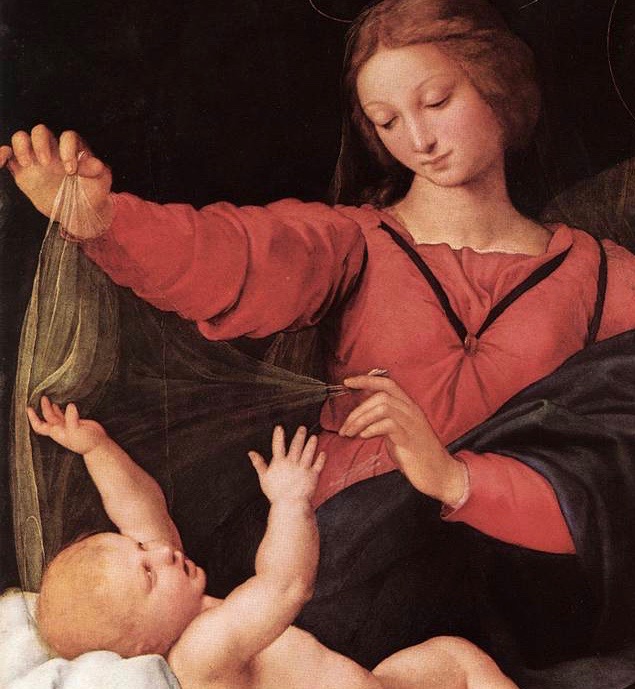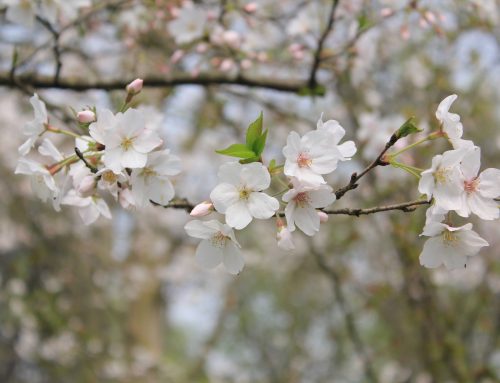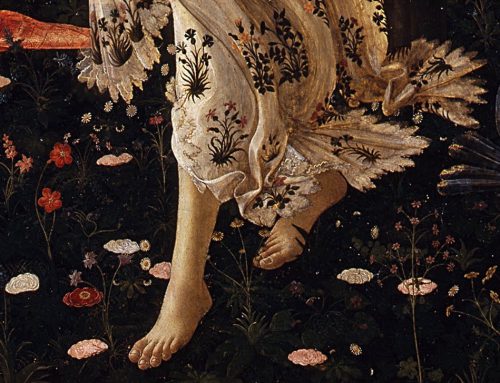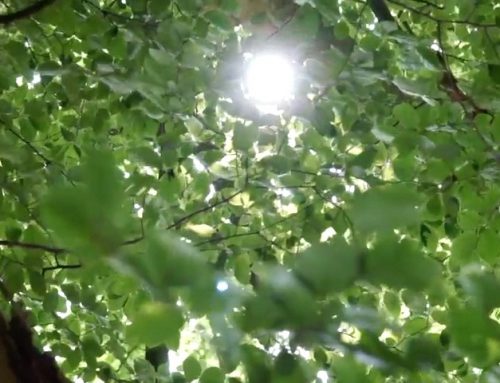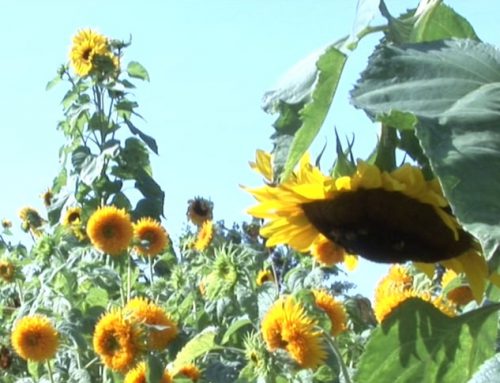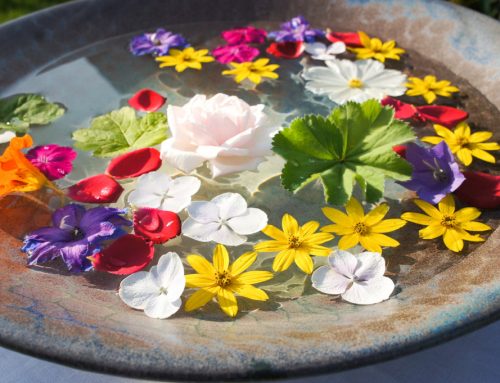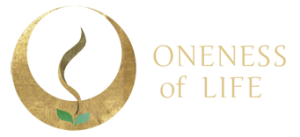Project Description
Spirituality over Generations
Translated transcript of a talk by Angela Fischer
given at a seminar in February 2015
“Those who will come after us, they need us now.
They need us to be awake, breathing with the light
that circulates through the fabric of creation.
The light that connects us within the oneness
that has always been, from before the beginning of time.“
-Angela Fischer
Let’s go all the way back now, to the point where our soul comes into this world – where we enter the dimension of time and space. As soon as we enter this dimension, we partake in time and space. And as soon as we become aware of this and then go further or deeper with this awareness, we also develop a responsibility for time and space. What can this mean, taking responsibility for time and space?
Responsibility for space – that’s something we can begin to imagine. Space as the place where we live. We have a certain responsibility for this place, for the surroundings in which we move. But what about time? Human beings’ sense of time is, after all, only a particular type of perception, just as space is. But from the human level, embedded in a physical world, what we perceive as time is the succession of particular moments and events. And this succession of events is also what we call history. We have a history of the universe, a history of humanity – histories that move through time. A succession that from our human perspective we perceive as yesterday, today and tomorrow.
There is also, of course, a perspective from which we can say: everything occurs in one moment. The one moment contains yesterday, today, and tomorrow, in fact it contains eternity. But in our humanity we experience life differently. There are many moments in life, short and long moments. It’s all a matter of perception. Time is something relative, as we know, it is malleable. Sometimes we experience moments as very short, and sometimes as endlessly long. A familiar example of specific time perception is when one is in a life-threatening situation that arises suddenly and abruptly, as in an accident. Then one experiences the chronology of the event, which is perhaps a matter of three seconds, like endless minutes or even hours. Everything happens in slow-motion. This is therefore a long moment, although it is a short one measured on the objectivity of the clock.
From our human standpoint, we experience life along these moments, the short and the long, which we of course perceive sometimes more and sometimes less consciously – for many people, a large part of what is experienced flows past them unconsciously. And these moments are also experienced differently in the various phases of life. We are born, we are small children, we become adolescents, we are adults, we age. When we get older, we particularly sense the dimension of time because we notice the traces of time in us. We suddenly notice that time has left signs in us and on our bodies, too. Which is an interesting phenomenon as well: one does not necessarily feel this in one’s inner life. One looks in the mirror and suddenly sees these wrinkles, is astonished or even horrified and thinks good heavens! Time has really dug its way into this body. But inwardly one does not have this feeling of age at all.
We do not live in that time as very young children, as babies. Then there is no past, and there is no future: everything is one, both horizontally and vertically. We live in what we call the moment, and then, ever so gradually, this dimension of space, but also of time arises in our lives. Of space, because we suddenly perceive distances or sense that our mother is absent. We experience separation, and it is space that separates in the practical sense. And time gains in importance when all at once, a child begins to have conscious memories – the realisation to have a past. There is something that had been there previously. And then, at some point, the child begins to go into the future with her imagination, whether she happily expects something in the future, or fears something in the future – something that memory has marked with unpleasant experiences. And one day comes the sad moment when a child realises that one must make plans, that one must plan for the future; that one must anticipate things, at the latest when children go to school.
And on it goes… And with increasing age, the knowledge awakens in us – or a feeling for the fact that there had been a time before our time. A time before we had come into this world. We become aware that there is a past that is not only my own, personal past that I remember, but something that I do not remember individually from this life and that had already existed before. We live for a long time in the feeling of limitlessness, that we are the beginning- if there is a beginning. And so it is naturally a kind of abstraction that we carry out when we begin to learn about history in school, and when we develop a feeling for the fact that our parents and grand-parents had lived before, long before we had been here. And in just the same way we gradually develop the feeling for the fact that – although it is actually less present in our culture – that there is a time that comes after us. This means that at some time or other we are no longer here, but life goes on anyway. And the more impersonal the feeling for this, all the more are we able to find an access to it and develop a feeling for how everything is connected with everything else, how everything is linked via time and via space:
We are able to recognise that there is in fact a thread in life that weaves through time and space and that connects everything.
And nothing is mutually independent. We perhaps develop a certain feeling for how, seen spatially in this world, everything is connected and linked with everything else. The famous narrative of the beat of the butterfly’s wings in China triggering a heavy storm in America describes this awareness. But the same connection exists not only in space, at the same time, but also over time – this means over the generations, if we see it within the human dimension.
Concretely, we can realise, more in the personal area, that- although we come fresh and new into this world when we are born-, we inherit a legacy at the same time. First of all, we have our genetic legacy that we cannot escape. We have the DNA determined by our parents’ genes, our grandparents’ our great-grandparents’, from all generations going back. Basically, back to the mother of us all, who evidently – I don’t know if this has changed in the meantime, but at least until very recently this was the scientific consensus – was African. It’s also interesting to highlight this a bit: we all have a common mother. A beautiful African woman, whose children we are! And evidently we are therefore all sisters and brothers.
Nonetheless, the genetic features have continually multiplied and differentiated, and that is of course what constitutes diversity. We therefore come into this world with these very specific genes from our parents, grandparents, great-grandparents. That is a past that is instantly present in us. And then there is a further level. We are born into a particular culture, in a particular country. And this cultural sphere and this country also have a very specific past. A very specific history shapes us as well. And this extends beyond the physical features. If we transfer this to the personal level once again: it is not only our parents’ and grandparents’ physical characteristics that are present in us as a part of the past, their state of mind and their emotions also play a part, and what they in turn inherited from their parents psychologically. Here in Germany this is a significant theme over and over again in connection with the National Socialist Period. Regarded culturally, the terror, cruelty, and the question of responsibility and guilt have, very strongly influenced the psychological situation into which we have been born. This at least applies to my generation and that of our parents. But I believe that the next generation – today’s young adults – are also still affected by it.
And then of course, there’s a history of the earth. It too is present at my entry into this world. Just as what is present as the past makes a culturally shaped difference- whether I am born in an indigenous tribe in Africa or born in England, Germany or somewhere else in Europe-, the point in time of the condition of our earth in which I am born also makes a difference. The experience of the earth at the moment in time of my birth has a significance as it is also present in me, through me, when I come here into the world.
We therefore are not without a past. And the moment we begin to live and to be here, we basically accumulate a new past. We have experiences that at some point in turn become a particular kind of past.
If we look at the inner journey, we see that at some point there is a particular necessitiy of dealing with our past. When we begin to awaken, we sense that it is important to work with our past, which means, first of all, accepting our past and integrating it. On the other hand the issue is also to release patterns that have conditioned us and prevent us from really being ourselves and becoming free to live our true nature. And when we work with this, when we release more and more our attachment and entanglements, we also bring light into a dense meshwork, making it more transparent. And in this way we take on responsibility for the past. We take on responsibility for the past by reconciling, releasing, forgiving, integrating, and laying to rest patterns that we no longer need and that confine us. In this sense, a certain responsibility for the past – the past as a direction in the dimension of time – is definitely present. However, what we pay less heed to in our culture with respect to the past is not so much releasing what hinders us, what we have to free ourselves from, but instead the recognition and appreciation of that part without which we could not exist, and our gratitude for it. As Thich Nhat Hanh once put it:
“Your body belongs to your ancestors, your parents, and future generations, and it also belongs to society and all other living beings. All of them have come together to bring about the presence of this body. Keeping your body healthy is an expression of gratitude to the whole cosmos–the trees, the clouds, everything.” (Thich Nhat Hanh, Touching Peace)
That is something we only seldom bring to mind: they have all come together to generate the presence of this body. Taking responsibility for the past in a certain sense also means becoming aware of this legacy and being thankful for it.
And there’s yet another aspect in our culture, one that has in fact been neglected. In a way, we live a great deal with the past. We have history books, we try – of course quite abstractly and only from a particular dimension of the intellect – to comprehend and recollect the past as history. And with a normal school education one has at least a bit of a feeling for a history of humanity.
But in our western culture, with respect to the past, a feeling for tradition and a feeling that comes from tradition is something that we scarcely possess at all. And with tradition I do not mean being conservative, clinging and clutching at something old. Instead, in referring to “tradition” I apprehend that a particular spirit is present over the generations, and nourishes us. A spark that was given at the beginning and that has been passed on and transmitted, and that I believe is important for us to be aware of. The point is to sense, to be aware of what has been gifted to us, and from which we are nourished as a human community in our relations with each other and in our relationship to the earth, and which we can pass on. But this essence can, of course, take on a new form at any time and in any manifestation. It is therefore not something that hardens in the outer form. The form can change. So under “tradition” I do not mean the outer form, but rather the inner spirit, the inner substance, which then can take on all possible forms.
There’s a suggestion from the eco-spiritual sector, just before beginning your meal, to bring to mind who and what has contributed to the wonderful food you are about to eat. Beginning with the seeds for the plants contained in the food, to the people who sowed the seeds, took care to harvest the plants, transport and distribute them, and all the other ingredients needed so that this meal comes together as a whole. In other words, a suggestion to become aware of all the people who were involved in this, who added their labour to the process, and of course the natural forces, the sunlight that allowed the plants to grow, the rain and soil that nourished them. In other words, a suggestion to be aware of all the people who were involved in it, who put their labour into it, and of course the forces of nature, the sunlight that allowed the plant to grow, the rain and soil that nourished it, all the gifts of the earth.
In a similar way, we can also become aware of what energies and what gifts were involved in having me live now as an individual human being. Innumerable energies were involved in what I am now thinking, feeling, what I am creating. What if we were to become aware – just as with the food on the table – of what an incredible chain of forces and gifts are involved and interwoven, and have contributed to my being just the way I am, right now? What if we were to become aware of the fact that with the help of these threads, our soul was able to knit that fabric of which our incarnation and our humanity is composed? That everything that we create, as soon as it takes shape, owes its existence to a part of these transmissions. And when I become aware of this I get a feeling for what I am calling ‘tradition’, for a particular inner spirit that has evolved in various expressions, over generations, and which is part of the consciousness of the world.
And tradition is important in exactly this way on our spiritual path. The guidance and signposts on the inner journey, no matter what system we find ourselves in, would not be possible if certain traditions had not existed that have paved these paths. Even if I did not belong to a particular spiritual tradition, but instead set off on my search in my own footsteps, there is a spiritual tradition within humanity itself that has led to this. Applied to the individual spiritual traditions, for instance Buddhist traditions, Sufi traditions, Taoist, Hindu, Christian or indigenous traditions, in the end all traditions take part in this: In a certain way they form one tradition of knowledge of the truth that has led to the fact that we are here sitting and meditating, and have an inner access to a greater reality.
And when I grasp the essence of a tradition, or have access to its essence, I am not just connected to the past. I am then connected to the future as well. Because it is a spirit that connects all of us over all generations. It connects us over all ages of the world, with all life on this earth and with the light of the earth. And in this way we are also connected with the beings of the future.
How do we live this in practical terms? How are we connected practically with these beings, the beings of the future? – I’m not referring to our children and children’s children, but for now mean it completely impersonally. I’d like to read to you a short quote from Irina Tweedie in this context:
“The realization that every act, every word, every thought of ours not only influences our environment but for some mysterious reason forms an integral and important part of the Universe, fits into it as if by necessity so to say, in the very moment we do, or say, or think it – is an overwhelming and even shattering experience. The tremendous responsibility of it is terrifying. If all of us only knew that the smallest act of ours, or a tiny thought, has such far-reaching effects as to set in motion forces which perhaps could shatter a galaxy…If we know it deeply and absolutely, if this realization becomes engraved permanently on our hearts, on our minds, how careful we would act and speak and think. How precious life would become in its integral oneness.” (Irina Tweedie, Daughter of Fire)
And this is also the way in which we are connected with future generations, because through our lives we prepare the groundwork for the future, for the lives of those who live in the future. As the indigenous people of America say that the leaves of trees that return to the earth at the end of their lives are future trees, and that in this way the forests of the future are in the interior of Mother Earth. And they also say that, in the same way, a person whose life has come to an end returns to the earth, and so in the very same way our future grandchildren are in the earth. For this reason we should be respectful and careful with the place for our future generations.
One need not consider this only physically, one can see it symbolically as well, or view it on another level; that everything that we think and do in our lives, everything into which we breathe life, influences the whole. And in this way we also prepare the ground and the seed for everything that will grow in the future. And all being and all actions contribute to a world into which coming generations are born.
Thinking about coming generations, we in the West are accustomed to think at most about our children’s generation and, maybe, that of our grandchildren. But, as you know, in Native American cultures, their attitude is to reflect on seven generations back, and seven generations ahead. This means regarding in everything that I do, about what kind of influence it might have seven generations from now. It means that I ask myself: what effect will this have on the next seven generations – not just on my children or my grandchildren, and not just my personal children, but the generation of humanity, seven generations ahead.
Recently I just sat down and calculated this. We in our Western culture talk so thoughtlessly about this that it remains quite abstract. I tried to make it concrete for me. With respect to me personally: I know when my parents were born, I also know when my grandparents were born, but there it ends already. But I’ve calculated back when this might be, seven generations back. For one generation I took on average 25 years or so, or between 20 and 30, which is the projected age in which the next generation is born. And I arrived at the year 1770. Let’s make this clear: 1770! In our country this is the year in which Beethoven was born, Hegel, Friedrich Hölderlin. That is a year, a time in which the last witch trials were held – for instance, as a historical event. So if I think of just seven generations – if we look even deeper, from our soul, we can see much further – then my life is quite closely bound up with the last witch trials in Magdeburg. And I have also calculated into the future, and if I have done so correctly I arrive at the year 2150, when the child of the seventh generation after me will be born. 2150. Today no one of us is able to imagine that the earth will even still exist at all then.
And let’s return to the contemporary culture in which we live at the moment. We here all agree that our world is not in balance, that the greater part of humanity is not in line with a healthy attitude towards life. But to bring to mind once again why developing a different awareness of this in our world is so urgent: at the moment we are living so very enmeshed in our materialistic, consumption-oriented culture that we do not even think of the next, directly following generation. Trees that took decades to grow are felled for some consumer items, something very temporary. And if ever they are replanted, they will need decades once again to grow anew, and then they will live with a generation that will inherit at best rubbish tips left of those consumer goods made from that former tree. This one consumer product will in all likelihood not even last a single lifetime, let alone into the next generation.
I recently read about a cabinet-maker who works with wood in a special way. For him, a piece of furniture that he makes, a table, for instance, must last at least for the time that the tree from which it was made needed to grow. He gives lectures on this, about how this must be the fundamental principle of our production and our relationship to nature. It means, put concretely, that when you make a table from an old oak tree, assuming that the oak has stood for perhaps a couple of hundred years, the table must last and be used for several hundred years! And there were times in which things were more or less like this, but in the Age of Ikea, we are far removed from this indeed.
This attitude, as we all know, also is having extreme effects on the earth. And I’ll return once again to the indigenous culture of America. There is a saying by Chief Dan George – a chief from Canada who lived from 1899 until 1981, he was also a poet:
“The time will soon be here when my grandchild will long for the cry of a loon, the flash of a salmon, the whisper of spruce needles, or the screech of an eagle. But he will not make friends with any of these creatures and when his heart aches with longing, he will curse me. Have I done all to keep the air fresh? Have I cared enough about the water? Have I left the eagle to soar in freedom? Have I done everything I could to earn my grandchild’s fondness?” (- Chief Dan George, Tsleil-Waututh)
And this is in fact the question that we all should ask ourselves, as humanity, in this world, but which we avoid asking ourselves. Since in the culture in which we live, we are no longer able to think beyond our personal circle, our personal life. We no longer have a feeling for the fact that we ourselves are the children’s children of love, a love that has been transmitted over time, over the generations. And we also no longer have a feeling for the truth that the love that we now are living will nourish future generations.
I’ve read this little observation by Clarissa Pinkola Estés which I find very interesting. She writes:
“Think of it, we are the ancestors to the many far forward from now. Don’t forget. Legacy is merely gratitude to have found aspects of life worth living and preserving… and to be able to build and leave a signal fire for the Future beings who are already on their ways to Here. To us. The souls of the future are already on their ways to Here.
Look at this child… and remember you were once this size and as precious. That’s a definite yes. Seeing one’s own purity in the pure, is a fact of being an ancestor.” (—Clarissa Pinkola Estés)
She puts in other words – very impressively – what I tried to make clear before: Once I am in contact with the essence underlying the fact that I have ancestors, I recognise that I myself am also an ancestor. We are ancestors, regardless of whether we have children or not, and just as we have inherited a legacy when we entered this world – as I described at the beginning – we also pass on a legacy. We pass on something whether we want to or not. We pass on something to the following generations. And when we begin to become aware of this, we take on responsibility. Through this responsibility we can contribute to bringing more light into the world.
And if we have children of our own, we are naturally connected with them in a very special way, since as parents, and above all as mothers, we have an instinctive connection with this responsibility. This is a great piece of good fortune, it is a gift. It is not acquired, but comes through an instinctive connection. If a woman is more or less in harmony with her instincts, this feeling comes completely naturally as soon as she becomes pregnant and has a child. Anyone who has experienced it knows this. One gets an instinctive feeling for responsibility for the future. And what is also interesting is that we can often observe that women, as soon as they become mothers, get a completely new sense of their place in the ancestral line. All of a sudden, something new enters into their relationship with their mothers or grandmothers, and they no longer see themselves as isolated and alone, but for moments as a part in a greater whole, as well.
There are a great many examples of this. When I was pregnant with my first child, a tiny, embroidered baby shirt found its way to me- it was used, not new. It came through my sister, my mother was no longer alive. And it turned out that this baby shirt was a piece of clothing that I myself had worn as a newborn and that my mother – in those days people still did things like this – had embroidered it beforehand. Such a small, simple, white cotton cloth that one really puts on this tiny newborn that my mother had delicately embroidered while she was pregnant with me. I hadn’t known that something like this existed and was even still around. It came to me so that my first child could wear it. She wore it perhaps once or twice, she was such a big child. It didn’t fit for long. But she did wear it, as my other children did, and I treasure it to this day. I preserve only a very few things, but I still have this little shirt – although I don’t believe it can be passed on to future grandchildren, because at some point this cotton becomes brittle and won’t hold up that long. But its story and the idea that I myself, who was sitting there at that moment with my pregnant belly, had worn this little shirt as a tiny newborn – this idea suddenly imparted exactly this feeling to me: the feeling of being a part of something more comprehensive, a part of an ancestral line.
This coming and going, that we come into the world small and then at some time leave it once again, and then the next generation arrives. And although it was something completely personal, an impersonal feeling for the connection over generations arose. And that is also what constitutes the responsibility and the feeling of caring for the future in a particular way. This does not mean anticipating the future, to fill it with our concepts in advance, but instead being aware of it at the moment I am doing something. That is an awareness that comes from the Feminine, which does not mean that it just belongs to women. It belongs to the feminine principle, or a feminine quality that can be lived in human beings.
And so the question arises, as to whether the current incapacity in our culture to think of future generations, which above all finds expression in our treatment of the earth, does not also have a lot to do with the fact that we have forgotten and denied feminine qualities.
Physiologically and biochemically, human caring is seen as deriving from the now celebrated hormone oxytocin, one hears about it a lot these days. It is the so called “bonding hormone” which, thus the biochemists and physiologists, triggers caring for others in human beings. It is released in abundance in a woman who has just given birth. It is also called the “breastfeeding hormone” as it is connected with the physical and psychological ability to breastfeed. It also basically enables the mother to withstand the period in which she never has a full night’s sleep in good humour and to feel happy despite all her exertion. For this reason it is also called the “bliss hormone.” This is really a miracle of nature. A hormone that enables us to persevere in a period that is truly unbelievably strenuous. One gets no sleep, one has to respond at any time to this small being, and one does so, too. One doesn’t think about it, one simply does it. And it is released even more abundantly when women breastfeed. If a mother does not breastfeed, less is produced. It all interacts. The development that had taken place decades ago, that women breastfed less or not at all, mainly initiated by industry, has also resulted in mothers being further removed from a source that also gives them energy – and just physiologically expressed by means of a hormone that also keeps us in good humour.
Nonetheless, this hormone is not just produced in women, but in men as well, and it is not just produced in times around births. And there are now many scientific studies on the connection between the appearance of this hormone and the ability and possibility of bonding, of being able to care for others and to keep them in mind. And that is of course just the physical side of a process.
What I actually want to say with this is that the issue is for us to once again develop “inner oxytocin,” the oxytocin of the heart, since we all know that everything that appears at the outer, physical level is a reflection of something within us. So if there is an outer oxytocin, there is also an “inner oxytocin.”
The point here isn’t that we do something, take action, but instead that we leave space, make room. We’re dealing with another level here. And when we look at the words of Chief Dan George that I quoted above: one need not take it only literally, the issue here isn’t necessarily actionism. It surely also has to do- apart from becoming active- with making room inwardly, at the inner level. Making room for a world in which coming generations can live. The point is to not take the earth’s breath, not to take the earth’s space. And now, in conclusion, I would like to quote something I find very beautiful in precisely this context, written by Terry Tempest Williams, a contemporary American author and activist:
“The eyes of the future are looking back at us and they are praying for us to see beyond our own time. They are kneeling with hands clasped that we might act with restraint, that we might leave room for the life that is destined to come.” (—Terry Tempest Williams)
From here, we can ask questions. We have common questions, and as members of various generations, we also have different ones. For instance,
• for the younger ones among us: where do I pick up the thread of the tradition once again and still go my own way? How can I live a spiritual path, a tradition in the inner sense, in this materialistic world of the present?
• for parents: how shall I share my spiritual life with my children without forcing them into what is my perception? How can I pass on something without imposing it?
• for older persons: How do I allow for space – since I believe this belongs very much to growing older on the spiritual path – how do I make room? How can I leave space for those who come and at the same time pass on what I have experienced in the way of wisdom for living?
This talk and the contemplation on these questions were the entry to a day of meditating and sharing our thoughts and experiences regarding the question of how we can become more attentive to living on this earth with past and future generations.

